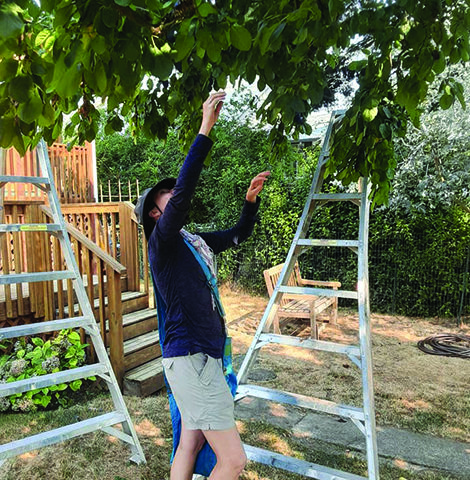Conference speakers share advice for the Alzheimer’s journey
Individuals, family members, and professional caregivers struggling with Alzheimer’s and other dementias are invited to the 2021 Pierce County Alzheimer’s Disease Conference, “Follow the Purple Brick Road,†in November.
The virtual conference, produced in partnership with Pierce County Human Services and the Health Care Providers Council of Pierce County, will feature online presentations from 11 a.m. to 12:30 p.m. on two consecutive Mondays and Wednesdays. The conference is free and open to the public, but attendees must pre-register online at www.piercecountywa.gov/alz or by calling Pierce County Aging and Disability Resources at 253-798-4600.
In recognition and support of Alzheimer’s Disease Awareness Month, each day of the conference will provide expert speakers reviewing different aspects of the Alzheimer’s disease journey. Here is the schedule of topics, which is subject to change and can be confirmed by checking the website:
- Nov. 1: This first day will address the initial diagnosis, identifying and treating symptoms, managing early-stage behaviors, self-care, legal issues, financial planning, and veteran services. Featured speakers include Laura Wayman (author of the book “A Loving Approach to Dementiaâ€), attorney Minta Andreve (Rehmke Law), and Joe Hillyer (Homewatch Caregivers).
- Nov. 3: Guidance on care funding and maintaining health and safety at home, including home care, home health, physician care, and local support groups. Featured speakers include Lynessa Stone (Advanced Health Care), Rebecca Rainsberger (American Advisors Group reverse mortgage specialist), and Matt Santelli (Pierce County Human Services).
- Nov. 8: Deciding when a care facility is needed, finding quality care, determining the right level of care, and the required legal documents. Featured speakers include Daphne Davis (Pinnacle Senior Placements), Lisa Doyle (CayCare), and attorney Minta Andreve (Rehmke Law)
- Nov. 10: Final decisionmaking, including coping with grief and loss while maintaining self-care. Featured speakers include Anne Allen (advanced grief recovery method specialist) and Kathy Bates (Compassionate End of Life Doula Inc.).
The conference will be recorded and made available online, along with supplementary resources, for anyone unable to attend.
More information about the conference is available from Aging and Disability Resources at 253-798-4600.

